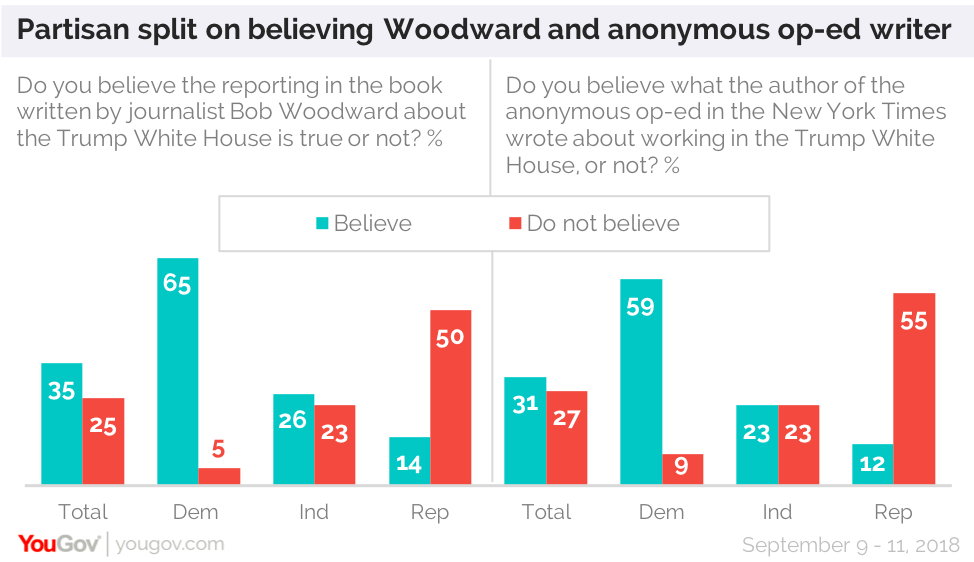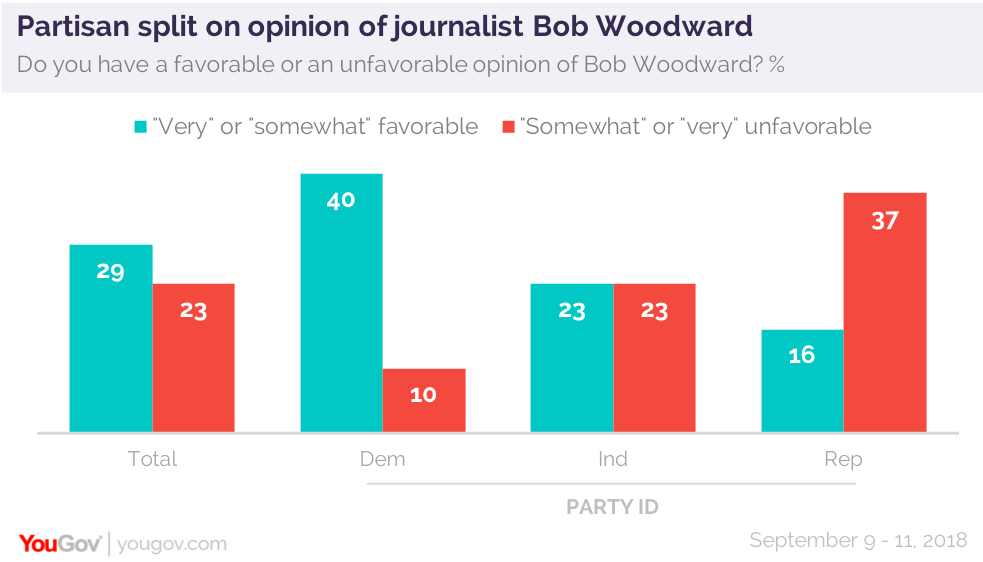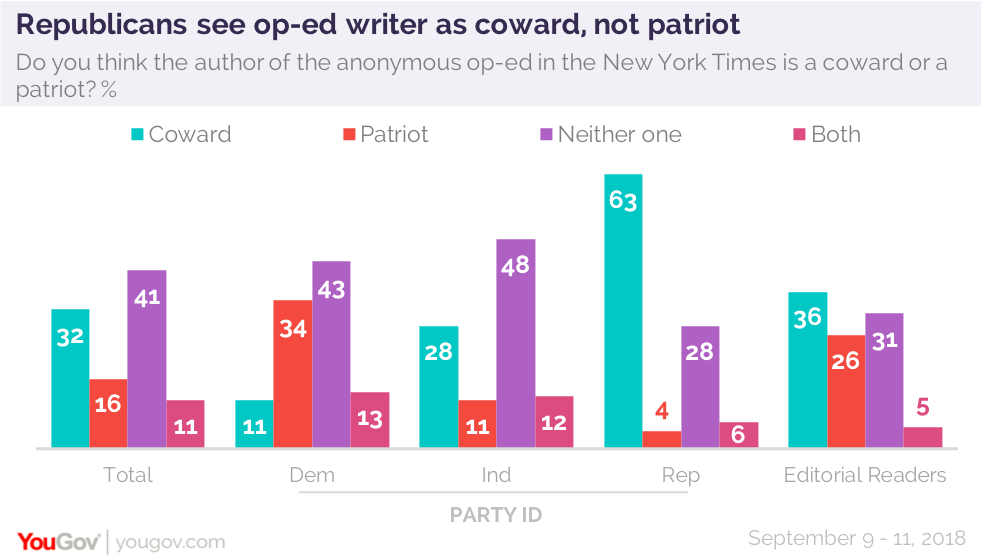Only 35% of Americans believe Bob Woodward's reporting
An unsigned op-ed in The New York Times and a new book by a man whose reporting helped to bring down a Republican President. Both works are extremely critical of the President, and both works are receiving divided and mostly partisan reactions.
But despite the furor, the latest Economist/YouGov Poll indicates that a lot of Americans, particularly Republicans, claim they haven’t heard all that much about either one. Just 29% say they have hard “a lot” about Bob Woodward’s new book Fear: Trump in the White House. More (37%) say they have heard a lot about the anonymous New York Times opinion piece, and 29% say they have read it. In all cases, Democrats claim to have heard and read more: 43% of Democrats had read the Times piece, compared with just 25% of or the Republicans.
Both works are seen as believable, though not by much. Public belief in what Woodward and “Anonymous” wrote is overwhelmingly partisan, as Democrats and Republicans seem to believe what they want to.

Differences in partisan beliefs are not unusual. They extend to Americans belief (or the lack of it) in Russian involvement in the 2016 election. In this case, Democrats overwhelmingly accept the truth of the reports, and Republicans overwhelmingly reject their veracity. Independents are evenly divided, although independents who have read The Times opinion editorial believe it. Those independents who have heard a lot about Woodward’s book believe it 52% to 34%.
Democrats and Republicans believe and disbelieve, respectively, whether or not they know much about the two pieces.
There are differences. Republicans by two to one have an unfavorable opinion of Woodward, but the public’s overall opinion of the journalist is narrowly favorable. Democrats are positive by about five to one, and independents are split.

But the author of the New York Times op-ed gets less esteem than that given to Woodward. More call the writer a coward than say the person is a patriot. And even those who have read the op-ed are more likely to call the person a coward than to honor them as a patriot. Many Democrats are conflicted, too. One in four say the writer – at least in part – is a coward; another 43% wouldn’t use either word. Independents lean towards using the word “coward.”

33% think it was a good idea to print the op-ed, but 36% disagree.







